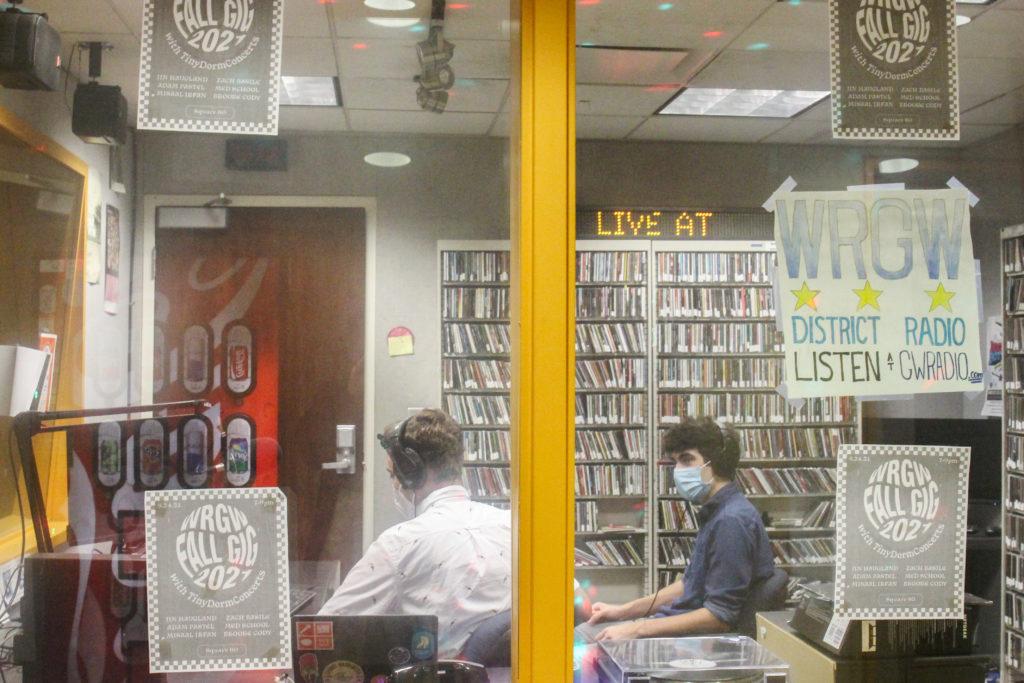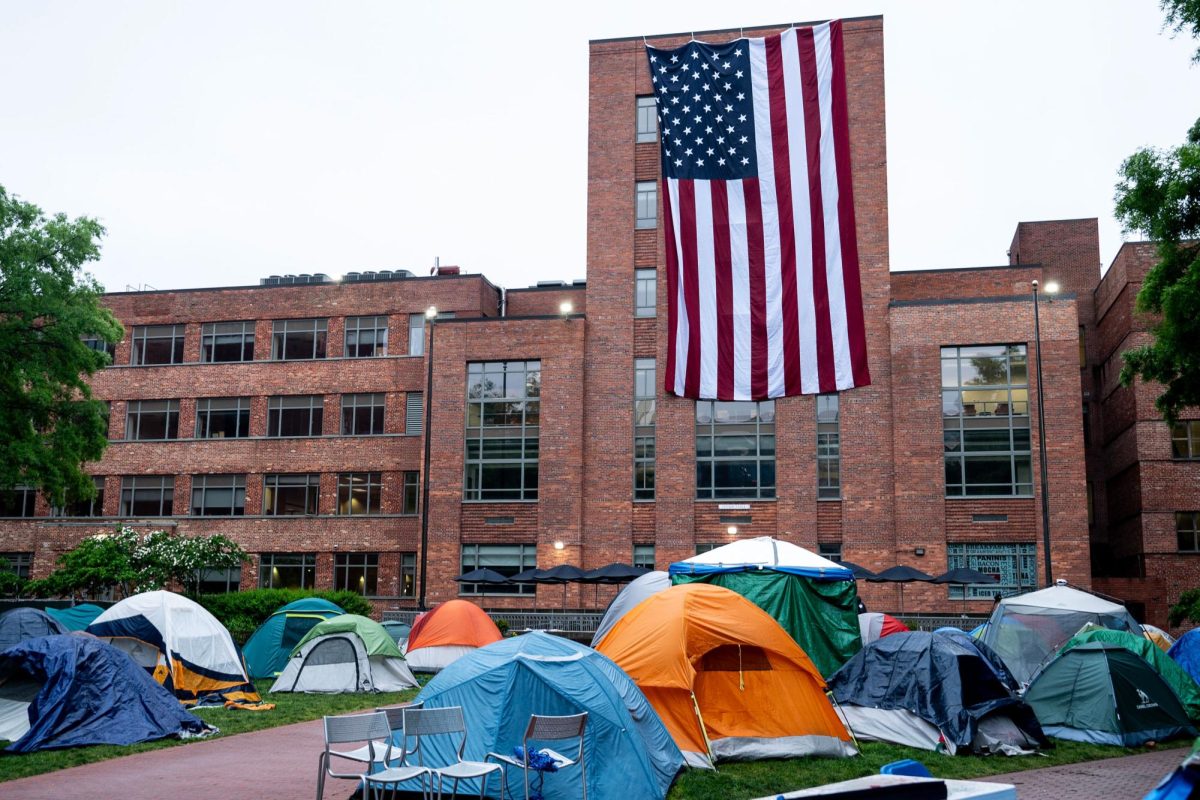With the GW community back on campus, students have turned to podcasts to create personal relationships with students.
Students who have launched their own podcasts since the start of the pandemic said podcasts have served as a medium to allow them to highlight campus communities and discuss local and global current events through interviews with students and officials. Those involved in student organizations’ podcasts said the shows have built a base of listeners to deliver information, forging unique relationships with student listeners across campus.
Here are some of the podcasts that students have launched on campus:
Capital Peers Podcast
Senior Carrie Kowalyk, the producer for the Capital Peers Podcast, said members of Capital Peers, a student-run group in the Division of Student Affairs that promotes leading healthy lifestyles, began producing podcasts last May. The podcast is posted on the Office of Student Life’s Vimeo, featuring students and officials and promoting wellness on campus – discussing topics like social well-being and helping distressed students on campus.
Kowalyk said Capital Peers turned to podcasts to communicate with students more effectively during the pandemic as they allowed for in-depth, personal conversations, unlike other forms of social media like Instagram.
“One of the best ways that we do our work is making relationships with students,” she said. “So having people talk on the podcast and familiar voices and having a conversation I think is a better way to form that connection.”
Kowalyk said limited funding from the University has kept the group from streaming podcasts on platforms like Apple Music or Spotify. She said posting the podcast on Vimeo acts as a “big barrier” because students have to check Capitol Peers’ Instagram to find the Vimeo link, but each podcast episode still gets about 50 views.
“It’s a bit harder to work with finances and get those things approved,” she said. “So that’s our next goal. But we do see views on Vimeo, and we get a decent amount when we share them on social media.”
Long Time No See
Senior Michael Kohler – the editor in chief of MediaFile, a student-run media news website at GW – launched his current events podcast, “Long Time, No See,” on MediaFile in 2019. He said MediaFile’s podcasts are posted on Spotify and include interviews with students and experts in various fields from around the country to discuss stories that aren’t widely covered in the mainstream media, like the 2019 Hong Kong protests and D.C.’s opioid crisis.
Kohler said he enjoys podcasts because they publish personal, emotional discussions that cannot be conveyed properly in a written format.
“The whole point of this show is to basically have you scroll through your Spotify feed and see like, ‘Oh, yeah, I haven’t heard of that in a while. What’s going on with that?’” Kohler said.
WRGW Podcasts: Buff and Blue Revue
Senior Scott Rosenberg – the head of the podcast department at WRGW, which started recording podcasts in 2018 – said the organization currently has one podcast called “The Buff and Blue Revue.” He said the podcast is co-hosted by David Korn and Nick Porr, and discusses GW Athletics, featuring an interview with athletes on campus and a Colonial of the Week, who the athletic department names as an outstanding performer.
Rosenberg said WRGW plans to announce three more podcasts for the fall semester, and the podcast department has seen expansion in its number of listeners and the number of students interested in producing podcasts.
“It just allows us to be more creative with these things and hopefully brings in a bigger audience because people like to see things that are different,” Rosenberg said
Senior Katy Ronkin, the general manager of WRGW, said podcasts are a “huge outlet for creativity” when compared to other forms of communication with students like social media. She said the station releases the “Buff and Blue Revue” podcast every Sunday on Spotify.
“The podcast program is awesome because it gives our members the skills that are really marketable and the skills that will allow them to be creative and create even more things to put into the world,” Ronkin said.
Ronkin said the members of WRGW’s podcast department are seeking to create an outlet for any students who want to either launch their own podcast or work on an existing show.
“I think the goal is that we just want to make it like an institution at WRGW and something that people know that if they have an idea for a podcast, we want to work with you and we want to make it happen,” Ronkin said.








